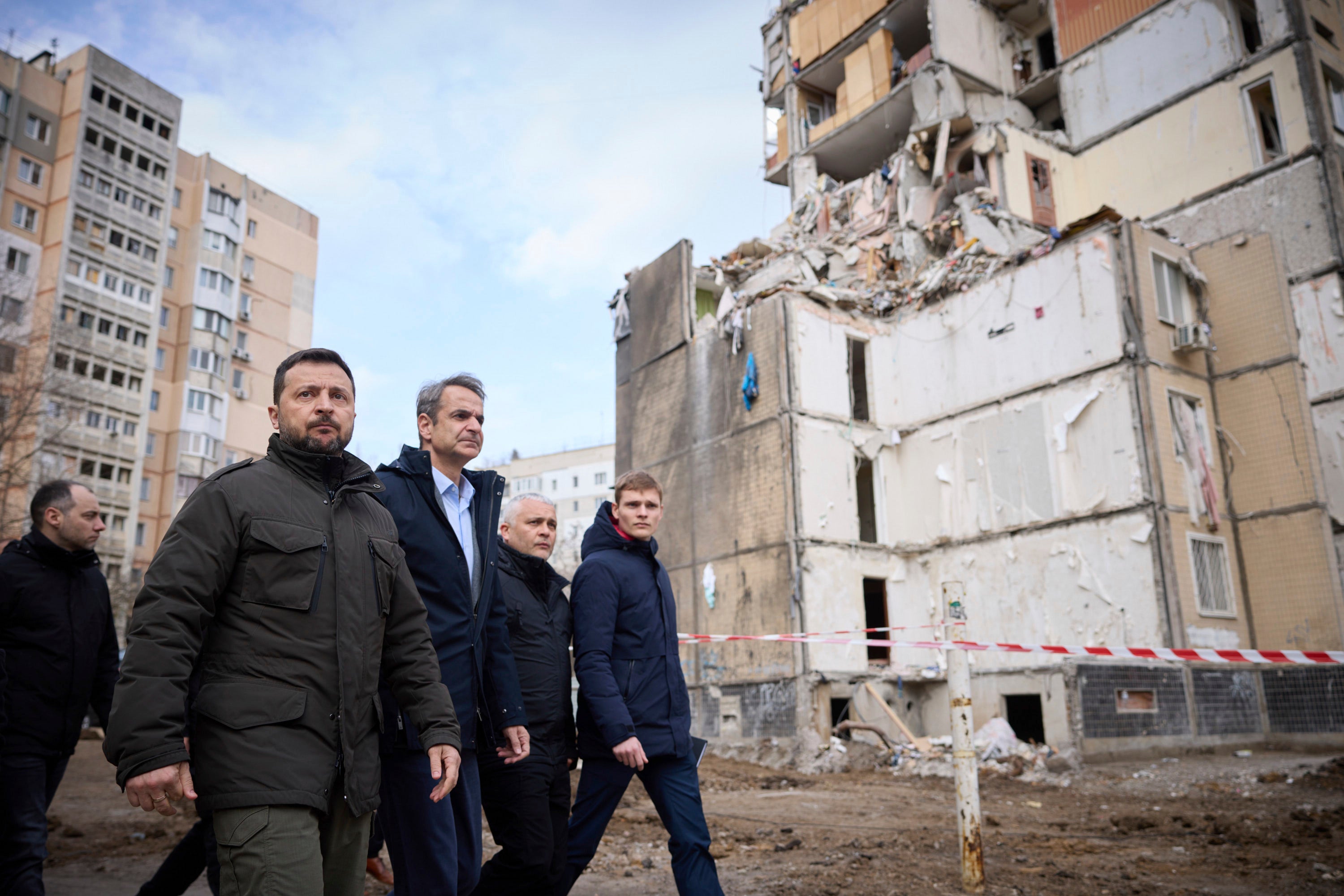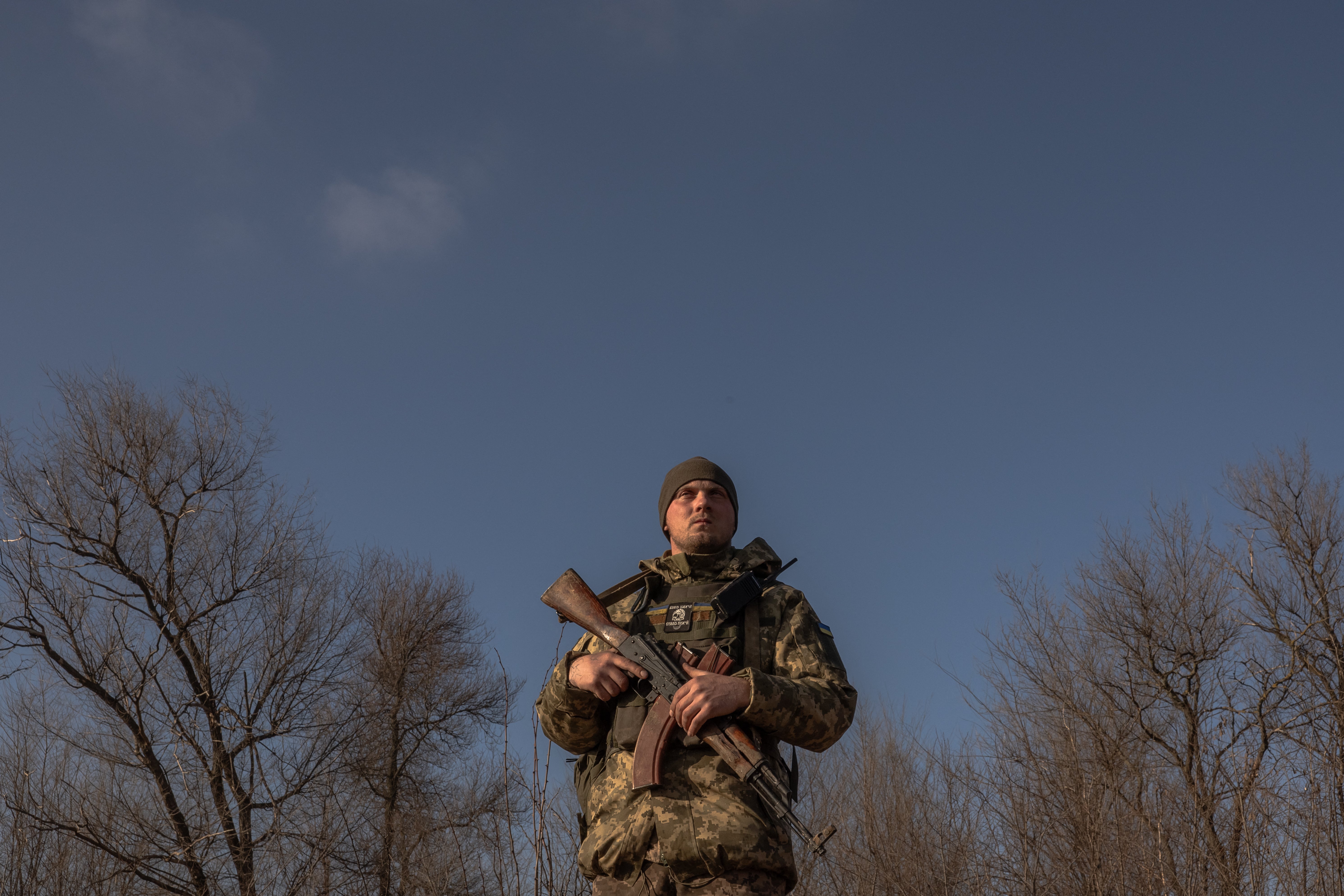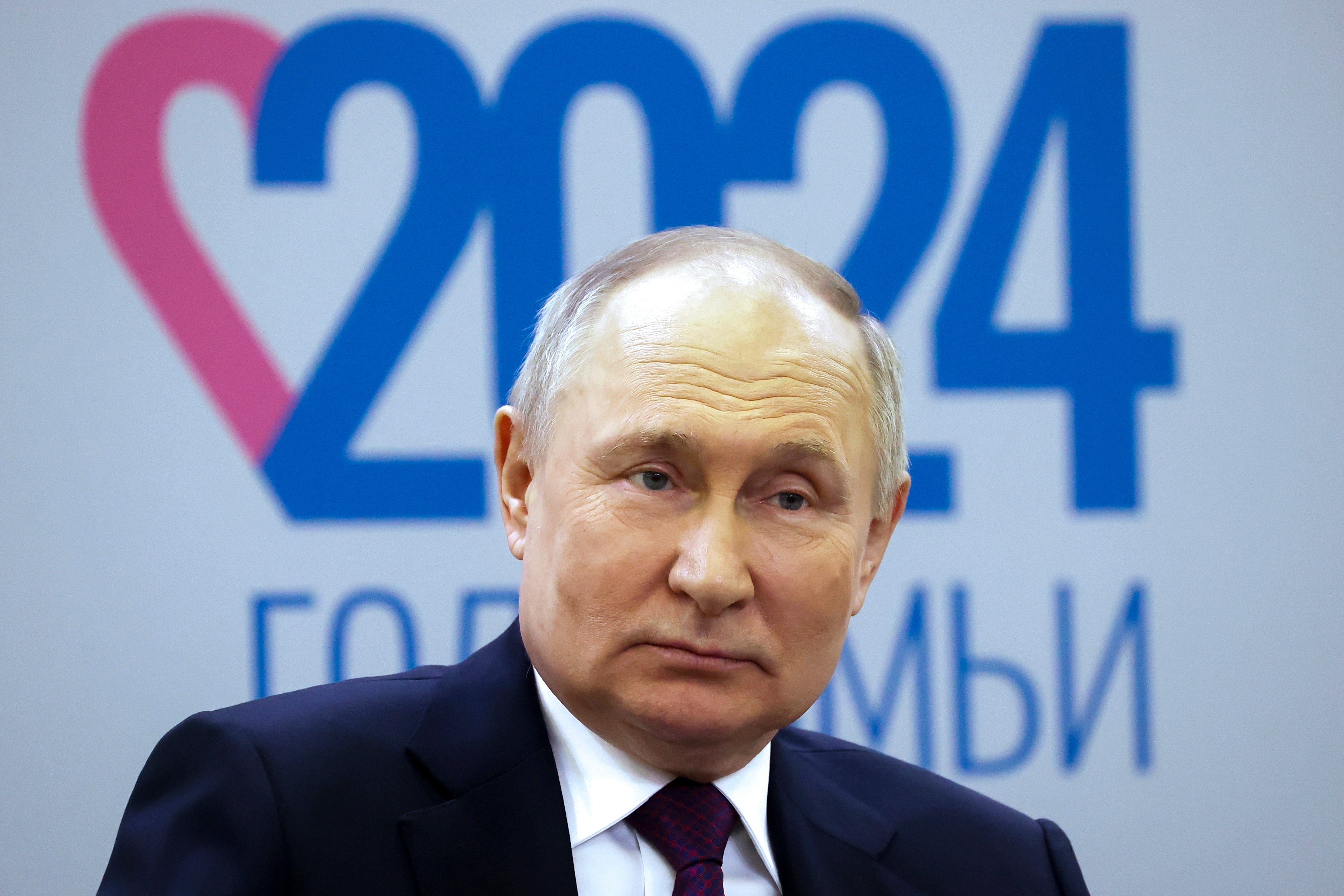Zelensky’s motorcade nearly hit by Russian missile as ‘Ukraine prepares for counter-offensive’
Head of UN's nuclear watchdog also visits Russia amid concern about Ukrainian power plant
Your support helps us to tell the story
From reproductive rights to climate change to Big Tech, The Independent is on the ground when the story is developing. Whether it's investigating the financials of Elon Musk's pro-Trump PAC or producing our latest documentary, 'The A Word', which shines a light on the American women fighting for reproductive rights, we know how important it is to parse out the facts from the messaging.
At such a critical moment in US history, we need reporters on the ground. Your donation allows us to keep sending journalists to speak to both sides of the story.
The Independent is trusted by Americans across the entire political spectrum. And unlike many other quality news outlets, we choose not to lock Americans out of our reporting and analysis with paywalls. We believe quality journalism should be available to everyone, paid for by those who can afford it.
Your support makes all the difference.Volodymyr Zelensky’s motorcade was nearly hit by a Russian missile on Wednesday as the Ukrainian President visited the Black Sea port of Odessa.
Zelensky was with Greek Prime Minister Kyriakos Mitsotakis when the missile hit infrastructure close enough for the leaders to see the strike, with sources estimating the attack happened a mere 500 to 800 metre distance from the delegations.
“You see who we’re dealing with, they don’t care where to hit,” Zelensky told reporters in the wake of the incident, which killed five people, according to a Ukrainian navy spokesperson.

Mitsotakis, who was on his first visit to the country since Russia's invasion in February 2022, said that during the tour the delegation heard sirens and a big explosion as they headed towards their cars. Confirming his country’s continued support of Ukraine, he told Zelensky: “My presence here reflects the respect of the entire free world for your people and underlines Greece’s commitment to remain by your side.”
A top military commander on Wednesday said the Ukrainian military will stabilise the battlefield situation shortly and aims to form units for counter-offensive actions later this year.
Ukrainian forces experienced a setback following nine months of mostly stable front lines, when the eastern city of Avdiivka fell into Russian hands earlier in February after months of devastating attacks.

Ukrainian troops were forced to leave several settlements neighbouring the city due to Russia’s continued offensive amid its own depleting stockpiles of munitions. Meanwhile, a vital aid package from the US has been stalled by Republicans in Congress.
“We will stabilise the situation shortly,” Oleksandr Pavliuk, appointed as ground force commander during the recent top military reshuffle, said in televised comments, “and do everything possible to prepare the troops for more active actions, and to seize the initiative.”
He added that current work was aimed at withdrawing military units that lost their potential and restoring them to later form a force for counter-offensive actions this year.

President Volodymyr Zelensky said that Russia would try to prepare a new offensive this spring or summer, but that Kyiv had a battlefield plan of its own.
Ukrainian drones on Wednesday struck one of Russia’s largest iron ore plants, with the attack claimed by a source in Ukraine’s GUR military intelligence agency. Ukraine has stepped up long-range drones to strike targets deep inside Russia.
It comes as the head of the UN's nuclear watchdog visited Russia amid concern about a Ukrainian power plant caught in the crossfire since Moscow sent troops into Ukraine in 2022 and seized the facility.

International Atomic Energy Agency (IAEA) director-general Rafael Mariano Grossi arrived at the Black Sea resort of Sochi on Tuesday evening, according to Russian state news agency RIA Novosti.
The IAEA has repeatedly expressed alarm about the Zaporizhzhia Nuclear Power Plant, Europe's largest, amid fears of a potential nuclear catastrophe.
The plant's six reactors have been shut down for months but it still needs power and qualified staff to operate crucial cooling systems and other safety features.
Mr Grossi met Russian President Vladimir Putin and said on X, formerly Twitter, that they had an "important exchange" about the plant and nuclear non-proliferation issues.
Meanwhile, Germany’s ambassador to the UK has said there is “no need to apologise” for the security breaches which led to a call between top military officials being leaked by Russian sources. Miguel Berger told BBC Radio 4’s Today programme one of the participants had likely dialled in via an insecure line.

Join our commenting forum
Join thought-provoking conversations, follow other Independent readers and see their replies
Comments